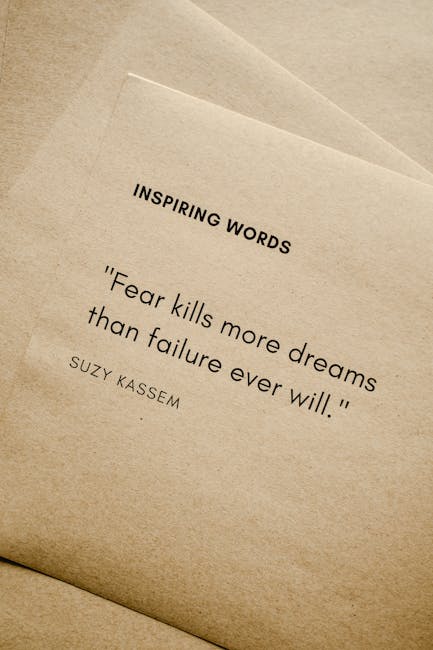Mindset Meaning: Unlocking Your Potential Through a Growth Mindset
The concept of mindset, particularly the distinction between a fixed and growth mindset, has permeated discussions across various fields, from education and business to personal development and sports. Understanding the nuances of these mindsets and how they influence our thoughts, behaviors, and ultimately, our potential, is crucial for anyone seeking self-improvement and success. This article delves deep into the meaning of mindset, exploring its origins, characteristics, and practical applications for unlocking your full potential through the cultivation of a growth mindset.
The Genesis of Mindset Research: Carol Dweck’s Groundbreaking Work
The pioneering work of Stanford University psychologist Carol Dweck is foundational to our understanding of mindset. Dweck’s research, spanning decades, began with observing how children approached challenging tasks. She noticed a stark difference in their reactions to failure. Some children crumbled under pressure, viewing setbacks as evidence of their inherent limitations. Others, however, embraced challenges as opportunities for learning and growth. These observations led Dweck to formulate the concepts of fixed and growth mindsets.
Fixed Mindset: Believing in Innate Talent
A fixed mindset is characterized by the belief that intelligence, abilities, and talents are static and predetermined. Individuals with a fixed mindset believe they are born with a certain level of aptitude, and that this level is largely unchangeable. This belief system leads to several key characteristics:
-
Avoidance of Challenges: Individuals with a fixed mindset often shy away from challenges, fearing that failure will expose their perceived lack of ability. They prioritize tasks where they are confident of success, seeking validation of their existing skills rather than opportunities for growth.
-
Fear of Failure: Failure is seen as a devastating blow to self-esteem, as it is interpreted as proof of inherent inadequacy. This fear can lead to procrastination, avoidance of risk-taking, and a reluctance to step outside one’s comfort zone.
-
Discomfort with Effort: Effort is viewed as a sign of low intelligence. If someone with a fixed mindset has to work hard at something, they may perceive it as evidence that they lack natural talent. They may even try to downplay their efforts to maintain the illusion of effortless competence.
-
Ignoring Feedback: Constructive criticism is often perceived as a personal attack, rather than an opportunity for improvement. Individuals with a fixed mindset may dismiss feedback, rationalize their shortcomings, or blame external factors for their failures.
-
Threatened by Others’ Success: The success of others can be seen as a threat to one’s own self-worth. Individuals with a fixed mindset may feel envious or resentful of those who are more accomplished, viewing their achievements as a reflection of their own perceived limitations.
Growth Mindset: Embracing Learning and Development
In contrast to a fixed mindset, a growth mindset is characterized by the belief that intelligence, abilities, and talents can be developed through dedication, hard work, and learning from experience. Individuals with a growth mindset believe that their capabilities are not fixed, but rather malleable and capable of growth. This belief system fosters a different set of characteristics:
-
Embracing Challenges: Challenges are seen as opportunities for learning and growth. Individuals with a growth mindset actively seek out challenging tasks, viewing them as a chance to expand their skills and knowledge.
-
Resilience in the Face of Failure: Failure is viewed as a learning opportunity, rather than a sign of inadequacy. Individuals with a growth mindset are more likely to persevere in the face of setbacks, viewing them as temporary obstacles to overcome.
-
Effort as a Path to Mastery: Effort is seen as essential for achieving mastery. Individuals with a growth mindset understand that hard work and dedication are necessary for developing their skills and reaching their full potential.
-
Seeking and Valuing Feedback: Constructive criticism is welcomed as a valuable source of information for improvement. Individuals with a growth mindset actively seek feedback from others and use it to refine their skills and strategies.
-
Inspired by Others’ Success: The success of others is seen as a source of inspiration and motivation. Individuals with a growth mindset are more likely to learn from the accomplishments of others and use them as a benchmark for their own progress.
The Neuroscience of Mindset: Brain Plasticity and Learning
The concept of a growth mindset is supported by neuroscientific research on brain plasticity. Brain plasticity refers to the brain’s ability to reorganize itself by forming new neural connections throughout life. This means that our brains are not fixed at birth, but rather are constantly adapting and changing in response to our experiences.
When we learn something new, our brains form new neural connections. The more we practice and reinforce these connections, the stronger they become. This process allows us to develop new skills and abilities, regardless of our initial aptitude. Neuroplasticity provides a biological basis for the growth mindset, demonstrating that our brains are capable of continuous learning and development.
Cultivating a Growth Mindset: Practical Strategies for Transformation
While mindset can be deeply ingrained, it is not immutable. With conscious effort and deliberate practice, it is possible to cultivate a growth mindset and unlock your full potential. Here are some practical strategies for fostering a growth mindset:
-
Recognize and Challenge Fixed Mindset Thoughts: Pay attention to your inner dialogue and identify thoughts that reflect a fixed mindset. Challenge these thoughts by questioning their validity and considering alternative perspectives. For example, if you catch yourself thinking “I’m not good at this,” reframe it as “I’m not good at this yet.”
-
Embrace Challenges and Seek Opportunities for Growth: Actively seek out challenging tasks and projects that push you outside your comfort zone. View these challenges as opportunities to learn and develop new skills.
-
Focus on the Process, Not Just the Outcome: Shift your focus from achieving a specific outcome to the process of learning and improving. Celebrate your progress, even if you haven’t yet reached your ultimate goal.
-
View Failure as a Learning Opportunity: Instead of dwelling on your failures, analyze what went wrong and identify what you can learn from the experience. Use failure as a stepping stone to future success.
-
Seek and Value Feedback: Actively solicit feedback from others and be open to constructive criticism. View feedback as a valuable tool for identifying areas for improvement.
-
Practice Self-Compassion: Be kind to yourself when you make mistakes. Remember that everyone experiences setbacks and that failure is a natural part of the learning process.
-
Surround Yourself with a Supportive Environment: Seek out relationships with people who have a growth mindset and who encourage your growth and development.
-
Read and Learn About Growth Mindset: Continuously educate yourself about the principles of growth mindset and how they can be applied to different areas of your life.
Mindset in Action: Applications Across Different Domains
The principles of growth mindset can be applied across a wide range of domains, including:
-
Education: Encouraging students to embrace challenges, view effort as a path to mastery, and learn from their mistakes can significantly improve their academic performance and motivation.
-
Business: Fostering a growth mindset within organizations can lead to increased innovation, collaboration, and employee engagement.
-
Sports: Athletes with a growth mindset are more likely to persevere in the face of setbacks and to continuously improve their performance.
-
Personal Development: Cultivating a growth mindset can lead to increased self-confidence, resilience, and overall well-being.
Beyond Dichotomy: The Nuances of Mindset
While the distinction between fixed and growth mindsets is a useful framework, it is important to recognize that mindset is not a binary concept. Individuals may exhibit a mix of fixed and growth mindset characteristics, and their mindset may vary depending on the specific context. It’s also important to acknowledge that even individuals with a predominantly growth mindset can experience moments of fixed mindset thinking, particularly when faced with significant challenges or threats to their self-esteem. The key is to be aware of these tendencies and to actively work towards cultivating a more growth-oriented perspective. The goal is not to eliminate fixed mindset thoughts entirely, but rather to develop the ability to recognize and challenge them, allowing you to embrace learning, growth, and your full potential.





